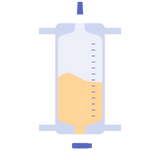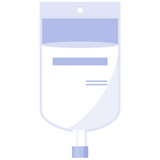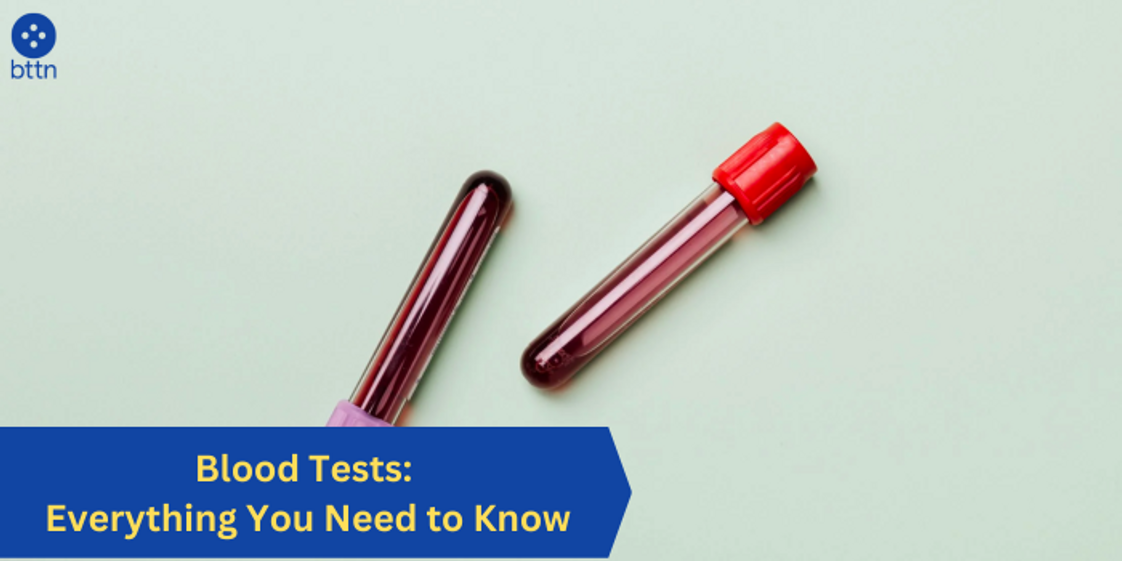
Blood Tests: Everything You Need to Know
Posted by Pankaj Dhiman on Oct 2nd 2023
Blood Tests: Comprehensive Guide to What They Are, What They Reveal, and How to Interpret Results
When it comes to assessing your health and diagnosing various medical conditions, blood tests play a crucial role. These tests provide valuable insights into your body's functions and can help healthcare professionals make informed decisions about your care. In this comprehensive guide, we will explore all aspects of blood tests, from what they are and what they reveal to common types and interpreting results.
What is a Blood Test?
A blood test, also known as a blood panel or blood work, is a medical procedure where a sample of your blood is collected and analyzed in a laboratory. This analysis provides essential information about your overall health and can detect a wide range of conditions, including infections, nutritional deficiencies, organ function, and chronic diseases.
What Does a Blood Test Show?
Blood tests can reveal a multitude of information about your health, including:
- Complete Blood Count (CBC): This test measures the number of red blood cells, white blood cells, and platelets in your blood. An abnormal CBC can indicate conditions such as anemia or infection.
Example: A low red blood cell count may suggest anemia, while a high white blood cell count could indicate an infection.
- Lipid Panel: It assesses your cholesterol levels, including LDL (low-density lipoprotein) and HDL (high-density lipoprotein) cholesterol, as well as triglycerides. Elevated LDL cholesterol is a risk factor for heart disease.
Example: High LDL cholesterol levels may indicate an increased risk of heart disease.
- Blood Glucose Test: Measures your blood sugar levels and is used to diagnose diabetes or prediabetes.
Example: A fasting blood glucose level of 126 mg/dL or higher on two separate tests may indicate diabetes.
- Liver Function Tests: These tests evaluate the health of your liver by measuring enzymes and proteins in your blood. Abnormal results can suggest liver disease or damage.
Example: Elevated levels of liver enzymes may indicate hepatitis or alcohol-related liver damage.
- Kidney Function Tests: These tests assess how well your kidneys are functioning by measuring creatinine and blood urea nitrogen (BUN) levels. Abnormal results can indicate kidney disease.
Example: Increased creatinine levels may suggest kidney dysfunction.
- Thyroid Function Tests: These tests measure thyroid hormone levels and help diagnose thyroid disorders such as hypothyroidism or hyperthyroidism.
Example: Low levels of thyroid-stimulating hormone (TSH) may indicate an overactive thyroid (hyperthyroidism).
- C-Reactive Protein (CRP) Test: Measures inflammation in your body and can help assess the risk of cardiovascular disease or infections.
Example: Elevated CRP levels may be a sign of inflammation linked to heart disease.
- Vitamin D Test: Determines your vitamin D levels, which are essential for bone health. Low levels can lead to bone disorders.
Example: A vitamin D level below 20 ng/mL indicates a deficiency.
- Hemoglobin A1c Test: Monitors long-term blood sugar control in individuals with diabetes.
Example: An A1c level of 6.5% or higher indicates poorly controlled diabetes.
- Coagulation Panel: Evaluates your blood's ability to clot and is essential for monitoring patients on anticoagulant medications.
Example: A prolonged prothrombin time (PT) may suggest a bleeding disorder.
Routine Tests and Others You Should Ask About
While the 10 blood tests mentioned above cover many important aspects of your health, there are other specialized tests you should consider based on your age, family history, and specific health concerns. These may include tests for cancer markers, sexually transmitted infections, or genetic predispositions to certain diseases. Always consult with your healthcare provider to determine which tests are appropriate for you.
Why Do Some Blood Tests Require Fasting?
You may have heard that certain blood tests, such as the lipid panel and blood glucose test, require fasting before the test. Fasting is necessary for these tests because it helps ensure more accurate results. When you fast, it reduces the influence of recent food intake on your blood chemistry, providing a clearer picture of your baseline health.
For a fasting blood test, you typically need to abstain from eating or drinking anything (except water) for at least 8-12 hours before the test. Your healthcare provider will provide specific instructions regarding fasting requirements.
How Long Does It Take to Get Results?
The turnaround time for blood test results can vary depending on the type of test, the laboratory's workload, and your healthcare provider's location. In many cases, you can expect to receive your results within a few days to a week. Some urgent tests may provide results more quickly, often within hours.
It's essential to discuss the expected timeframe with your healthcare provider, as they can give you a more accurate estimate based on the specific tests ordered.
How to Read Blood Test Results
Interpreting blood test results can be complex, and it's crucial to rely on your healthcare provider's expertise for a comprehensive assessment. However, understanding some basic principles can help you make sense of your results:
- Reference Ranges: Results are typically reported alongside reference ranges, indicating the normal values for that specific test. Results falling within these ranges are generally considered normal.
- Out of Range Results: Values that fall outside the reference range may indicate a potential health issue. However, abnormal results do not necessarily confirm a diagnosis. Further evaluation and follow-up tests are often required.
- Context Matters: Results should be interpreted in the context of your overall health, medical history, and symptoms. What's abnormal for one person may be normal for another.
- Discuss with Your Provider: Always consult with your healthcare provider to understand the significance of your results and any necessary actions or follow-up.
What's the Typical Blood Work Procedure?
The blood test procedure is straightforward and typically follows these steps:
- Scheduling: Your healthcare provider will schedule the blood test based on your specific needs and the type of test required.
- Fasting (if necessary): If fasting is required for the test, you'll be instructed to abstain from food and drink (except water) for the specified duration.
- Blood Collection: A trained phlebotomist or nurse will collect a sample of your blood. They will clean the area with alcohol and use a needle to draw blood from a vein, usually in your arm.
- Post-Test Care: After the blood draw, you may experience mild discomfort or bruising at the site. Applying pressure and a bandage can help alleviate any bleeding.
- Lab Analysis: The blood sample is sent to a laboratory for analysis, where it undergoes various tests, depending on your healthcare provider's orders.
- Results and Interpretation: Once the results are available, your healthcare provider will review them with you, explaining what they mean and discussing any necessary follow-up steps.
Final Thoughts
Blood tests are powerful diagnostic tools that provide essential information about your health. Regular check-ups and appropriate blood tests can help detect and manage various medical conditions, ultimately contributing to your overall well-being. Remember that open communication with your healthcare provider is key to understanding your results and making informed decisions about your health. Don't hesitate to ask questions and seek clarification when needed, as your health is your most valuable asset.
























